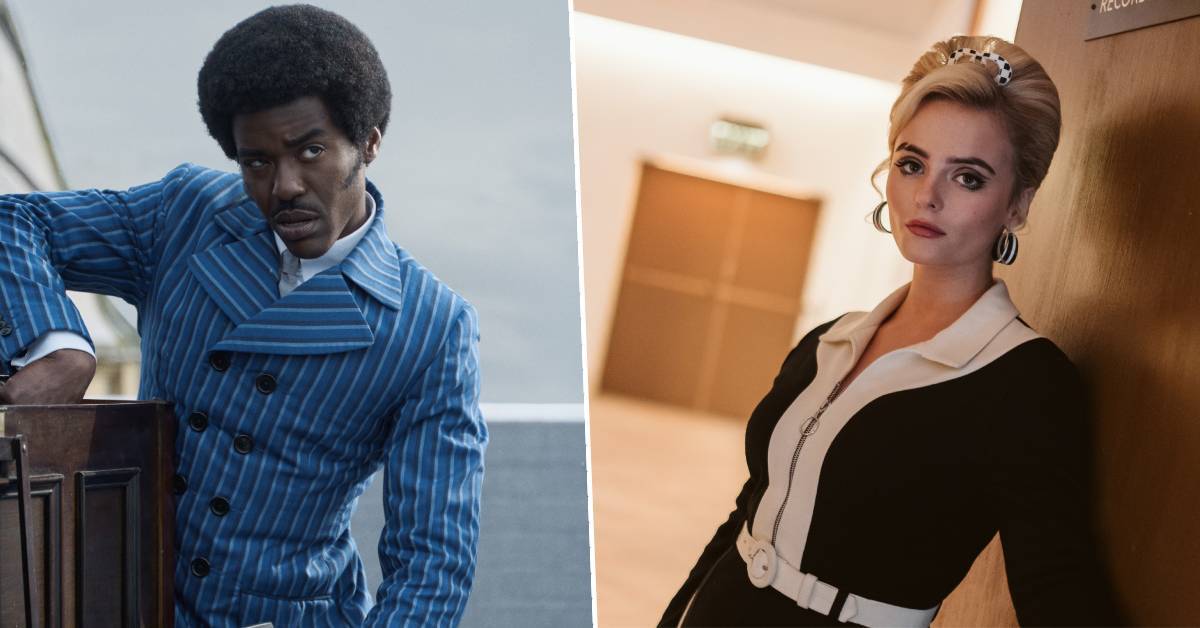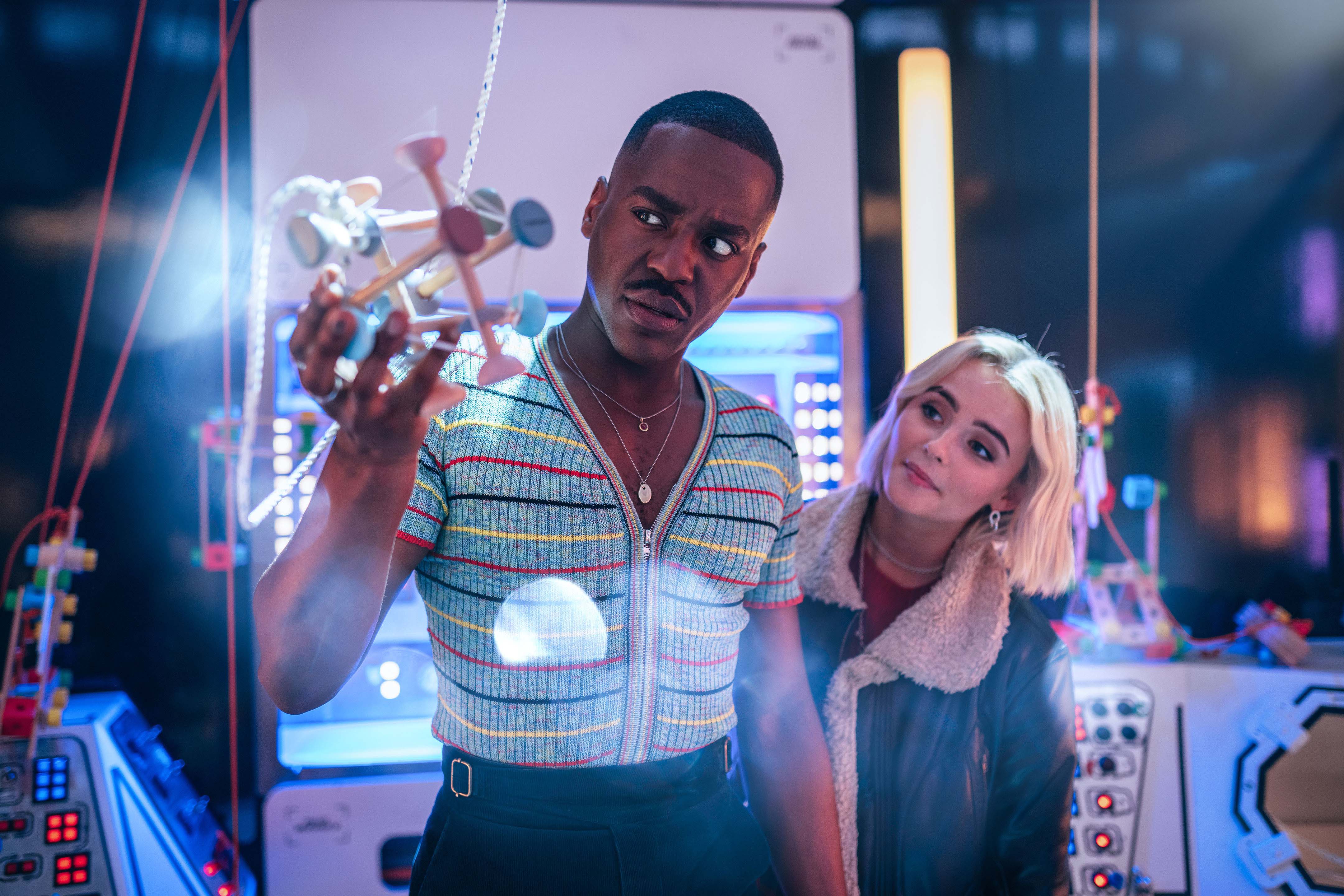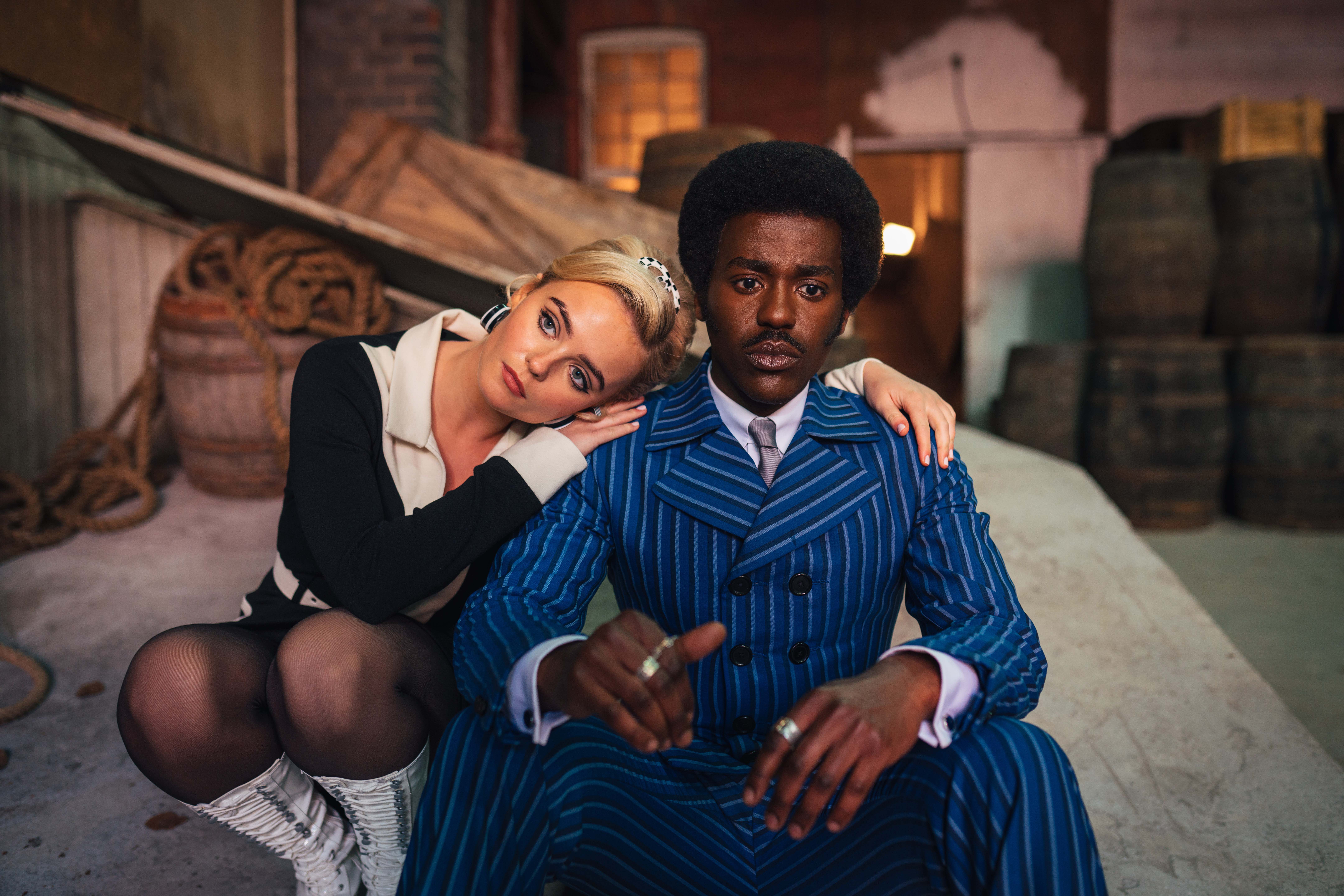
This is a spoiler-free review of Doctor Who Season One episodes one and two
One of the complaints that was occasionally leveled at last year's trilogy of 60th anniversary Doctor Who specials was that it perhaps felt a little too much like returning showrunner Russell T. Davies' previous era of Doctor Who. Those episodes - and I personally loved all three - consciously mimicked the structure of a David Tennant season of yore. There was the light-hearted opener, an experimental middle-season chapter that foregrounded character work, and the classic everything-but-the-kitchen-sink finale. Absent, however, was a sense that the "RTD2" era would be moving in new directions.
That's not an accusation that can easily be aimed at the first two episodes of Ncuti Gatwa's debut season as the Time Lord. 'Space Babies' and 'The Devil's Chord' will feel familiar enough to regular viewers - this is still very much Doctor Who and fears from fandom that the show has been somehow "Disneyfied" (whatever that even means) are unfounded. At the same time the show has made some changes, both in tone - it feels, in these two episodes at least, lighter and funnier - and the type of stories being told. Davies has hinted that the series will be embracing its fantasy elements more fully and that's certainly the case here, even while both episodes retain the dark edges and real-world themes of all Davies' work.
This is a spoiler-free review, so we can't get too deep into plot specifics. What we can say is that 'Space Babies' is set immediately after 'The Church on Ruby Road' as new companion Ruby Sunday (Millie Gibson) takes her first trip in the TARDIS. A "random landing" sends the pair to an isolated space station. This is a good chance to get all the essential exposition out of the way to get both Ruby and any new viewers up to speed. In the episode's first 15 minutes the Doctor has explained the TARDIS and its ability to translate alien languages, the whole two hearts thing, and the current status of Gallifrey. Crucially, Davies' script foregrounds the Doctor's recent acceptance of his status as a foundling - a theme, it seems, that will recur throughout the season.
Ncuti Gatwa is a fascinating and mercurial new Doctor

Then the Space Babies of the titles show up… and this is where I feel like the episode may prove divisive with fans and viewers.
One of the great things about Davies' anything-goes approach to Doctor Who is that, quite frequently, he'll come up with ideas that are so outlandish and bizarre that they're obviously brilliant. Sometimes, however, he'll hit on a notion that slides so far into whimsy that you end up questioning if the show (which, in fairness, is about an immortal eccentric who flies around the universe in a phone box) has slid too far into outright silliness. Basically, if you can handle talking babies working on a space station and a healthy dose of toilet humor then you'll probably enjoy the episode. If not, well, the next one will probably be more to your taste.
Putting the babies and the Bogeyman - a suitably slimy monster lurking in the depths of the station - aside for a moment, this is an episode that's all about showcasing the Doctor and Ruby working together. As we saw in 'The Church on Ruby Road,' Gatwa and Gibson have chemistry to burn, with the two gleefully bouncing off each other and clearly having a riot as they tumble through time and space.
Gatwa, in particular, is fascinating and mercurial in these two episodes. An admission of tragedy in his past is followed up by an enormous grin and the sense that, while he may have left his previous incarnation on Earth with Donna Noble to do "rehab out of order," he still carries the weight of his long and sometimes bloody history. There's a vulnerability to this version of the Time Lord, but also - so far - a refreshing lack of angst. Gatwa's Doctor has experienced awful loss, but he's moving forward with joy and wonder in his hearts.

'The Devil's Chord' is on surer ground and a more obviously crowd-pleasing episode. Taking place in 1963 - the very year that Doctor Who first aired on TV - Ruby and the Doctor are here to witness the Beatles recording their first album (that's Please Please Me, obviously) but something has gone terribly wrong with both the band and the world thanks to the arrival of Jinkx Monsoon's malevolent Maestro.
After the shock of the new of the previous episode, 'The Devil's Chord' welcomes long-term fans with some nice callbacks (one particular scene, hinted at in the trailers, directly echoes a past classic). Ruby's skills as a keyboard player also make a comeback, leading to a confrontation with the Maestro which sees the Doctor uncharacteristically terrified. The scenes between Gatwa and Monsoon here crackle with energy, both comedic and sinister and you really get the sense that this is a villain too strange and powerful for him to defeat easily. The Doctor is used to taking on armies and tyrants, but the Maestro is something else entirely and that's very exciting.
There has been much speculation that 'The Devil's Chord' will be a musical episode along the lines of Buffy the Vampire Slayer's classic 'Once More, With Feeling.' Again, we can't go into specifics here, but it's not quite that. It does, however, lead to a final act unlike anything that Doctor Who has ever attempted before. If you're watching the episodes live on BBC1 then it will make the ideal lead in to this year's Eurovision.
If these two episodes are your first experience of Doctor Who then you're likely to think this is the most bizarre TV show ever made with its babies and Beatles and dinosaurs and Bogeymen. There's a sense that Davies is not only keen to open the show up to a wider audience, but to push its boundaries beyond defined notions of genre. Oddly, the things it makes me think of are not just Star Trek and Alien (though both are lovingly winked at) but blockbusters like Paddington and Wonka - films that nominally take place in our world but have their own strange internal logic. That's pretty good company to be keeping.
At the same time, it retains the usual mix of life and death, love and monsters as ever. We start the season with a light-hearted episode called 'Space Babies' and will eventually end it with one titled 'Empire of Death.' The next instalment after 'The Devil's Chord' appears to be, in part, about the Doctor stepping on a landmine. Doctor Who is weird and wild and unpredictable. In that sense, at least, the show is the same as it ever was.
Doctor Who: 'Space Babies' and 'The Devil's Chord' are released on May 10 at 7pm ET on Disney Plus, and at midnight May 11 on BBC iPlayer. The episodes will also be broadcast on BBC One on May 11, starting at 6.20pm.
For more great new TV, check out our guide to the best new shows coming your way in 2024.







